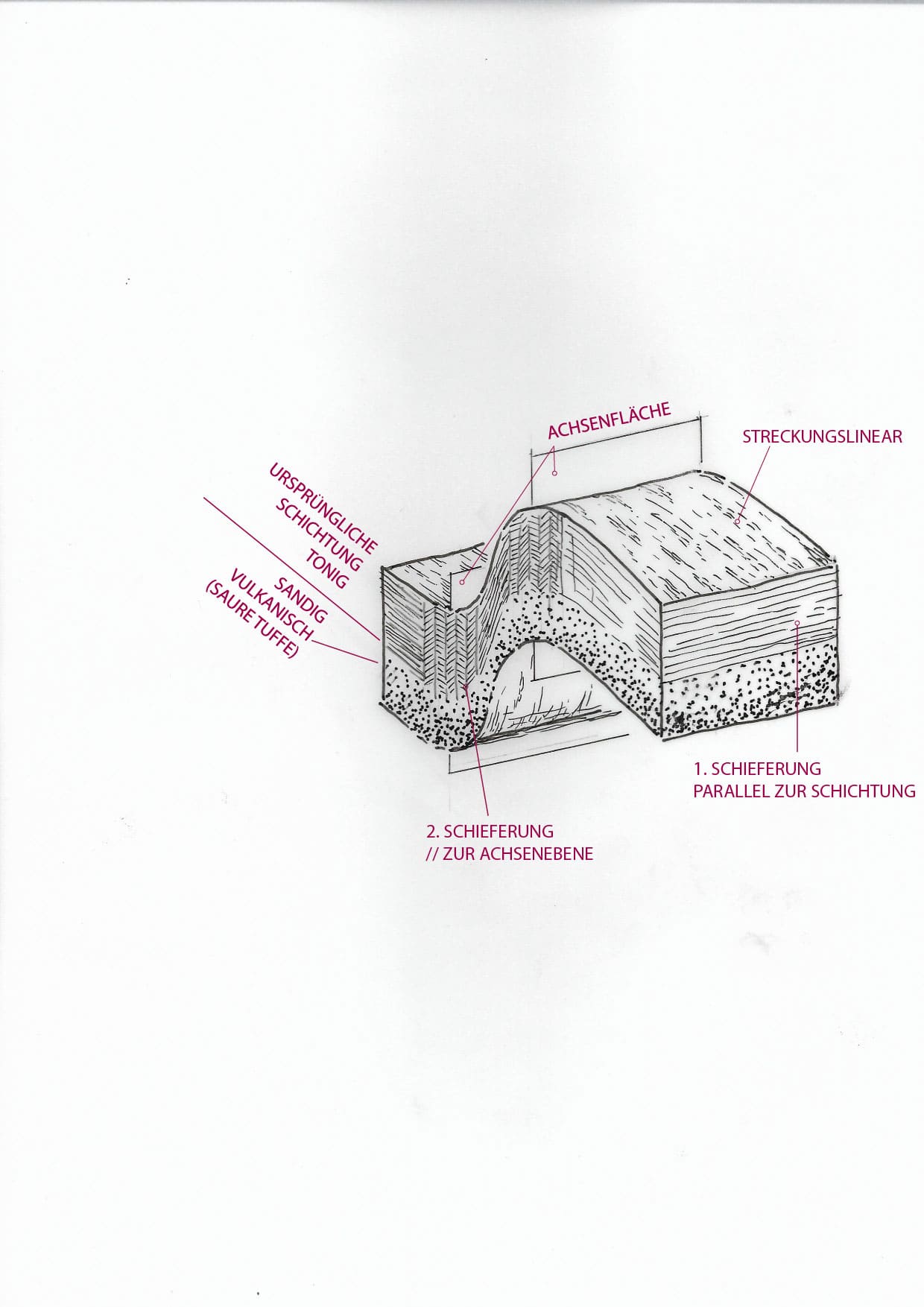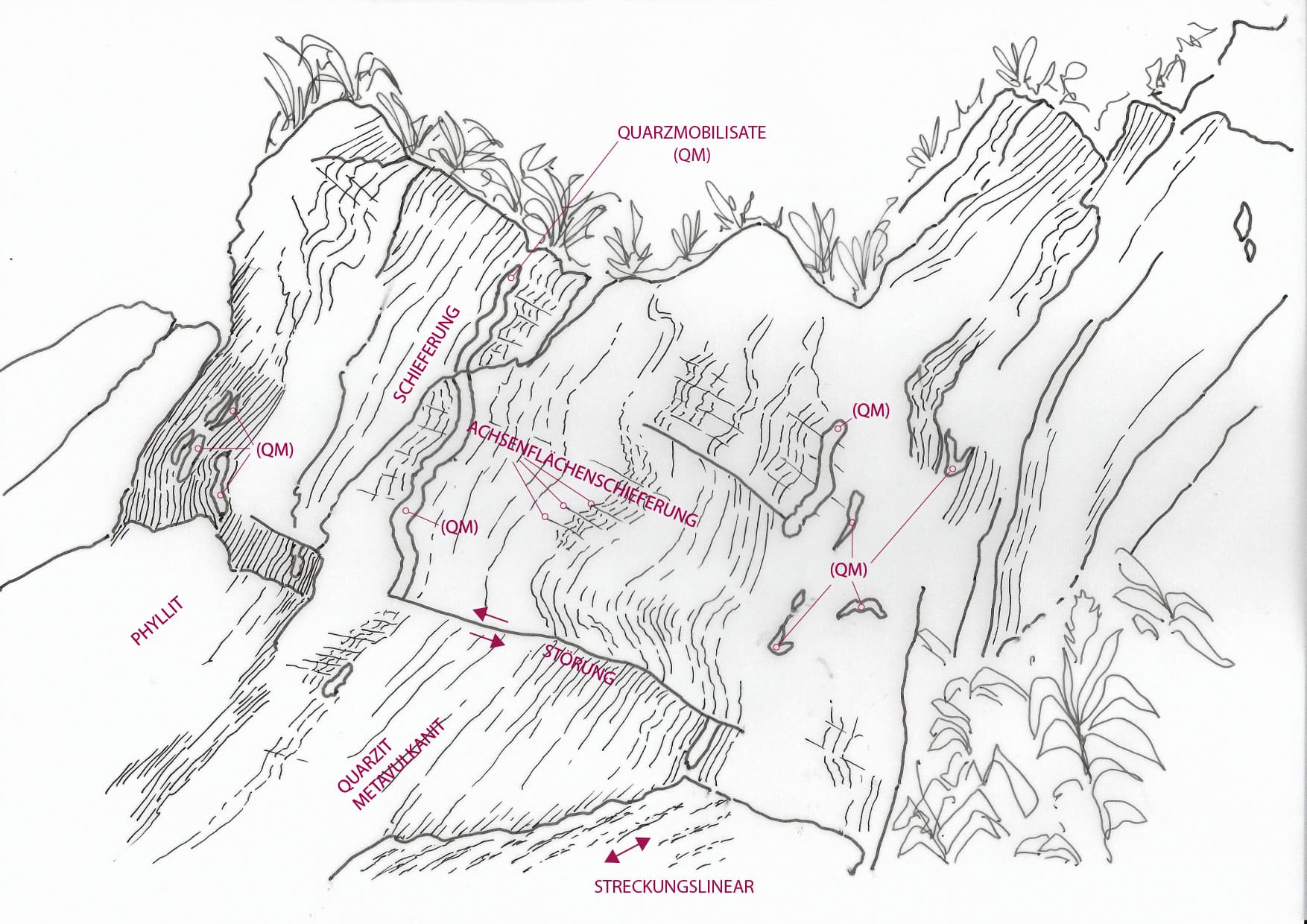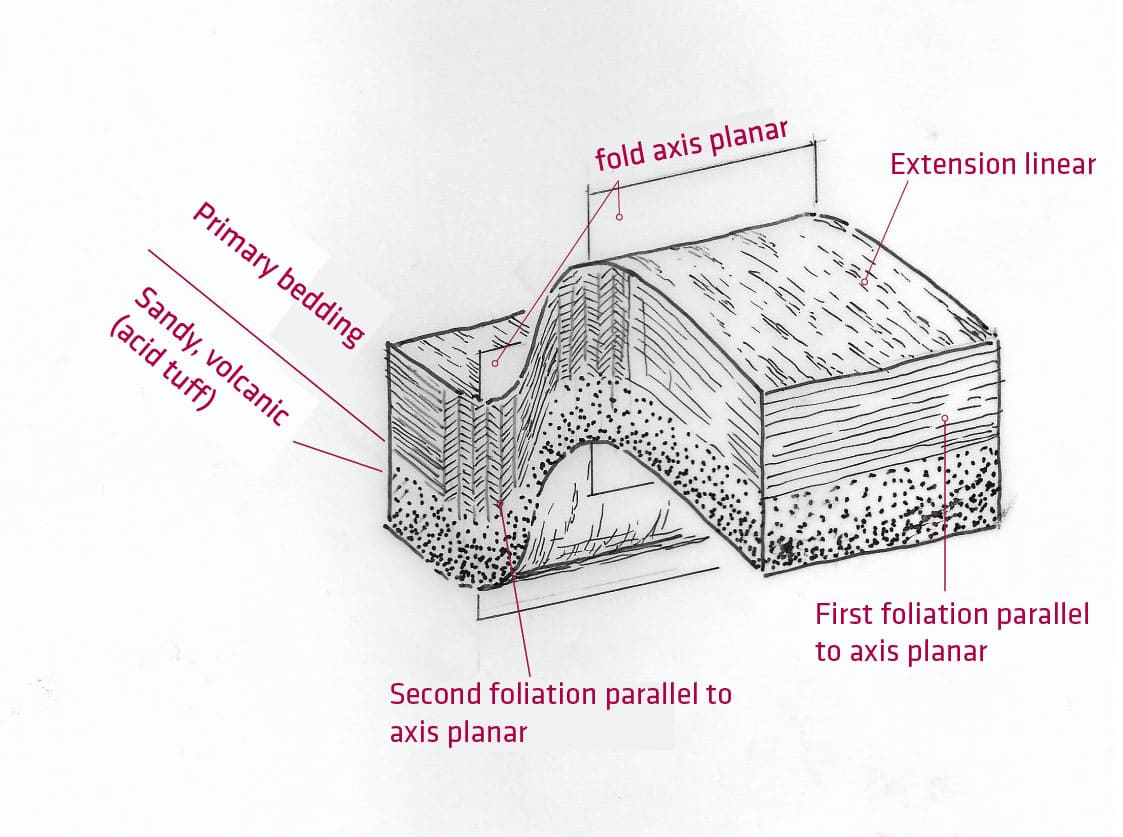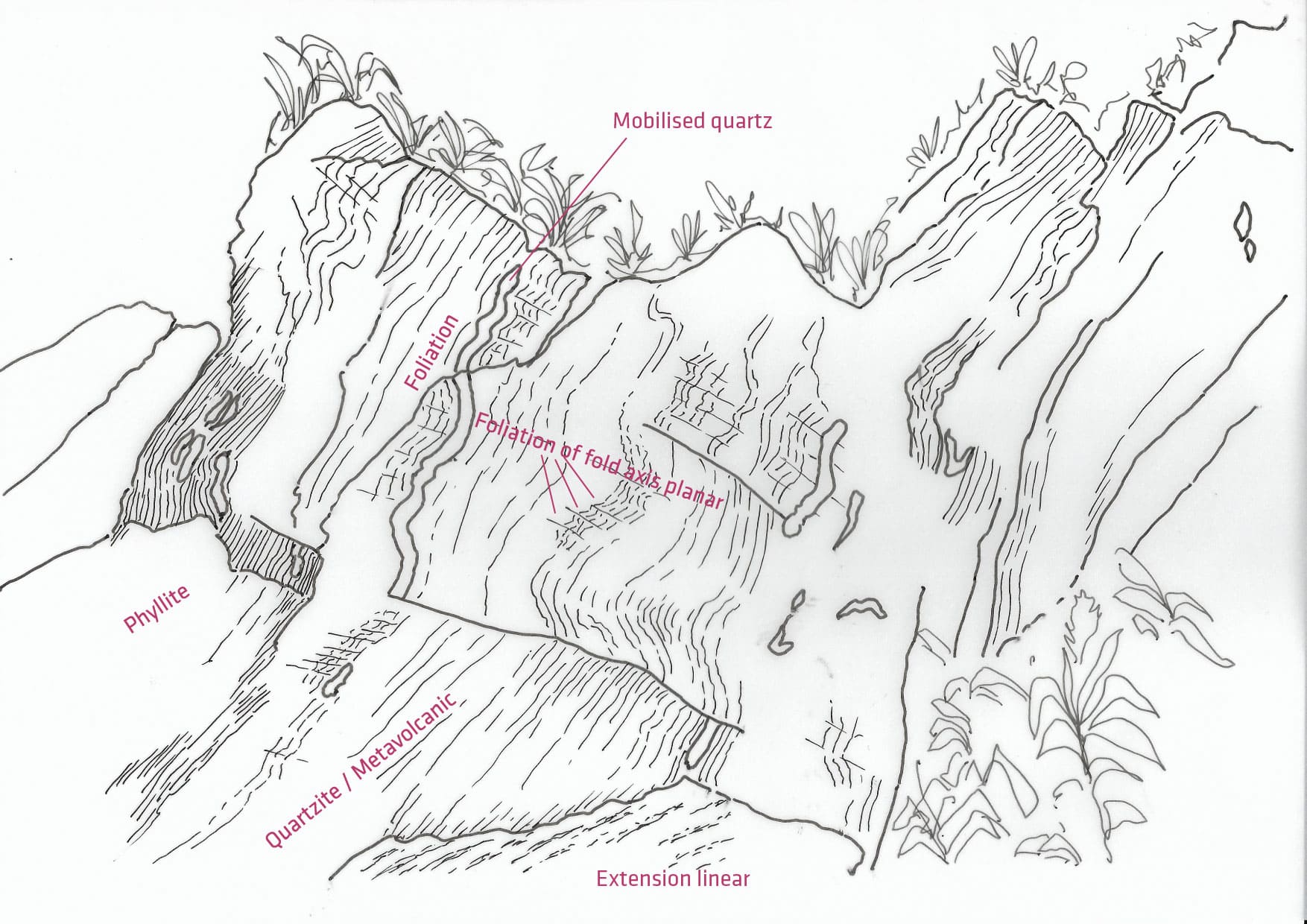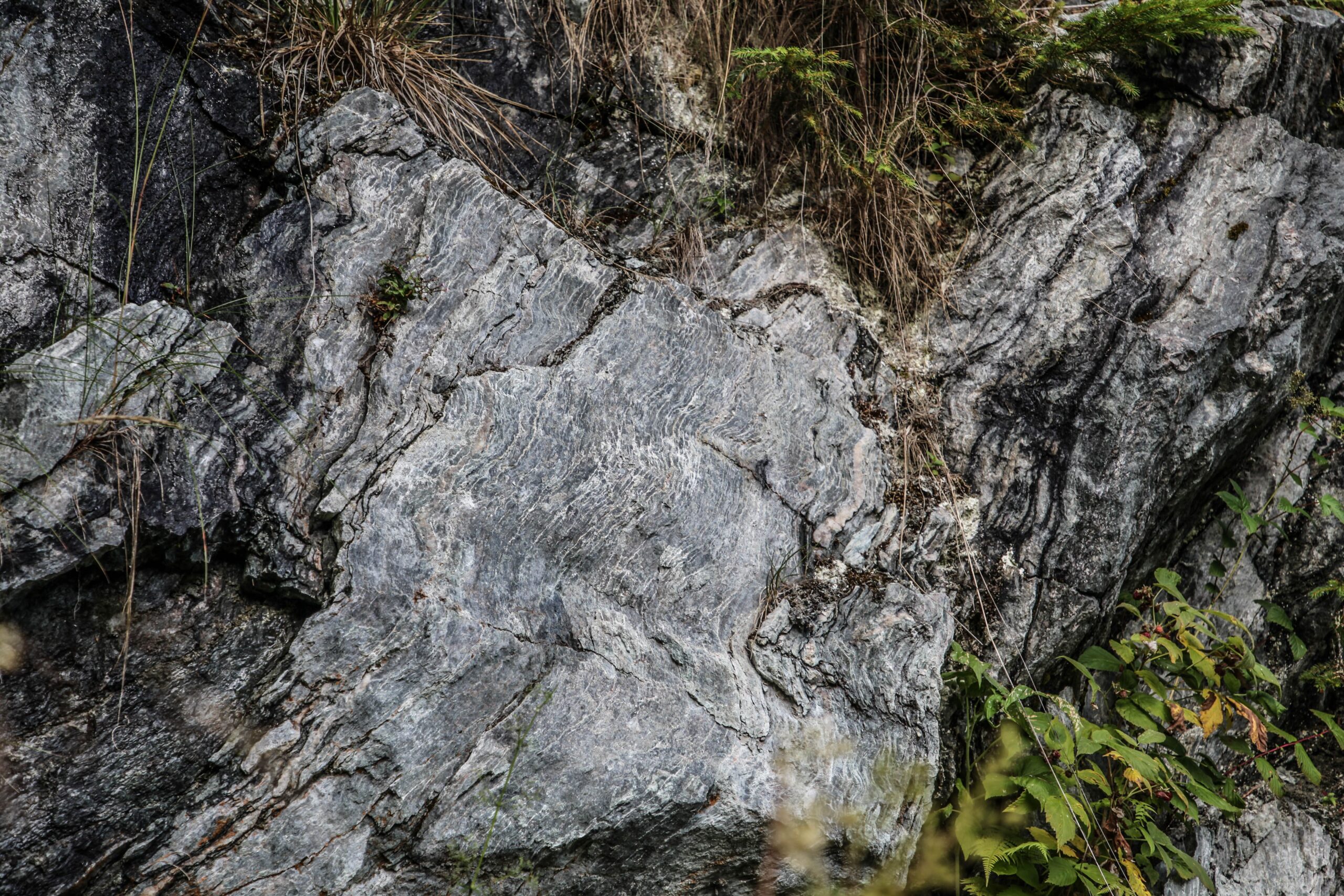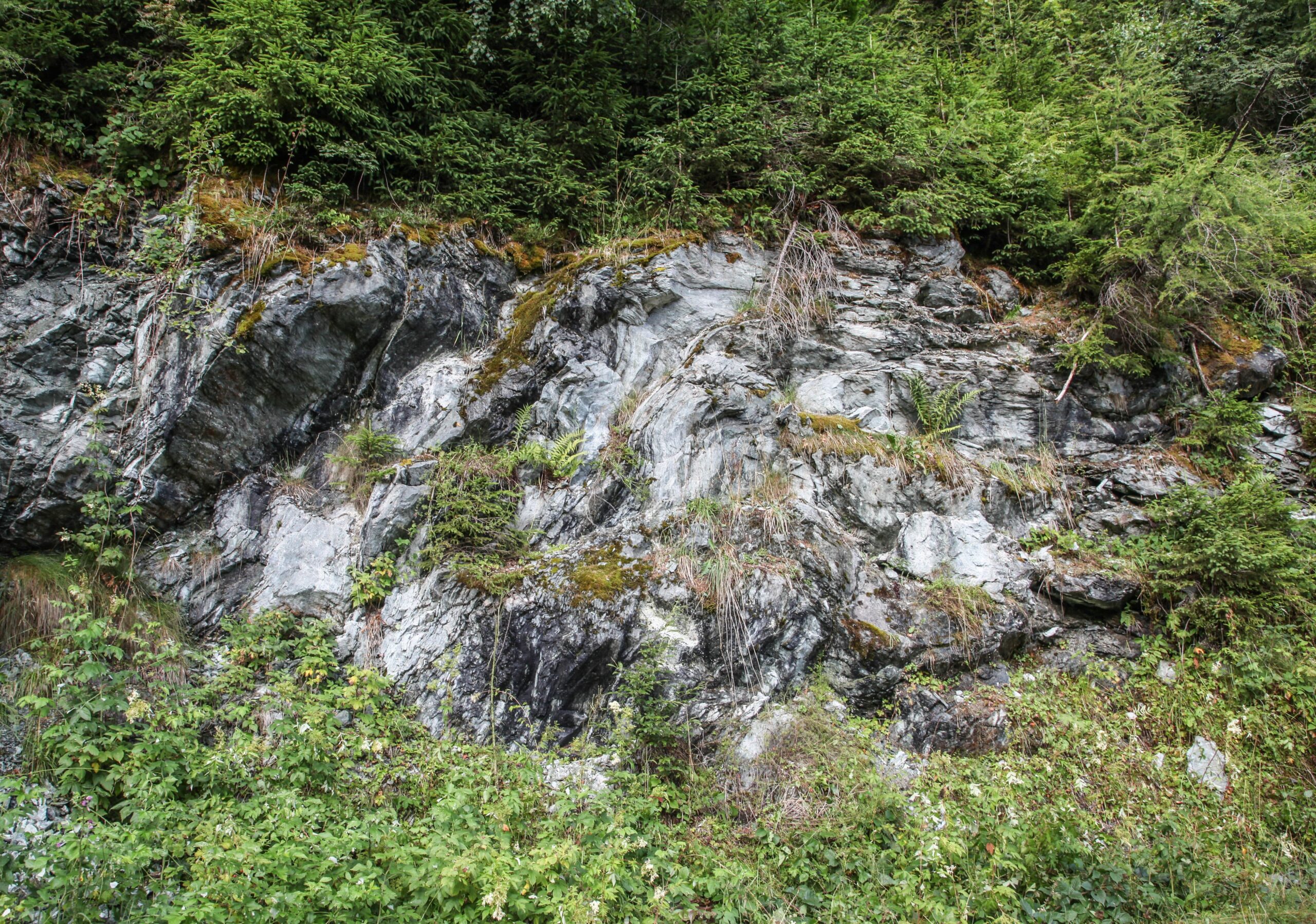Greywacke Zone - Folded Phyllites and Quartzite
Folded dark phyllites and quartzites
and/or acidic metavolcanics
The Schwarzphyllites originated from
dark, clayey sediments of the deep sea.
The dark, sometimes reddish color is due
to often-present organic components and
iron compounds. However, none of the
original clay minerals remain. The current
mineral composition is characterized by
metamorphism (rock transformation)
during a mountain-building process under
extreme conditions (temperature ≈ 350°C
- 550°C, pressure ≈ 200 - 1000 MPa),
resulting in mica, quartz, sometimes
feldspar, chlorite, and iron oxide.
The detailed sketch illustrates the relationship between the original bedding, the initial
foliation, and the second foliation in the form of axial plane foliation. Refer to the photo
for the sketch‘s location.
The light, compact layers were originally
either quartz sandstones, transported
from the beach area to the sea by rivers
or currents, indicating a sedimentary
environment that was likely near the
coast. Alternatively, they could be volcanic
tuffs, suggesting active volcanism during
the deposition of the clayey sediments.
Kids
What is geology?
Have you ever wondered how old the earth is? How did the oceans and mountains form? What did the earth look like before humans existed? Which animals and plants lived in the past, and why are many of them no longer around?
These are just some of the questions that the science of geology is trying to answer!
Geology is the science that investigates the many mysteries of the Earth: its origins and long history, the materials that make it up, and the natural processes that have shaped and moulded it. To solve these mysteries, geologists - scientists who study the earth - search for clues hidden in rocks, fossils and landforms. That's why we are often referred to as the detectives of the earth!
What is geology?
Geology is the science concerned with understanding the Earth: its origins and history, its structure and materials, and the processes that shape it. To solve these mysteries, geologists study rocks, fossils and landforms. As products of various geological processes, these materials contain clues that can help us decipher and reconstruct past events.
Exploring the Earth brings many benefits to society, such as preventing or reducing the impact of natural hazards and finding valuable natural resources that we use in our daily lives, such as energy, minerals and water. A deeper understanding and appreciation of the earth also helps us find ways to protect and preserve our planet.
What is geology?
Geology is the science that seeks to expand our knowledge and understanding of the Earth: its origins and history, its structure and materials, and the processes that have shaped it and will continue to shape it. Geology can be divided into several areas that specialise in particular aspects of the Earth. Geomorphologists, for example, study how landforms have evolved, while palaeontologists study fossils and the history of life on Earth.
Geological phenomena are often difficult to observe directly because they occur on different time scales (e.g. some processes occur instantaneously, such as earthquakes and tsunamis, while other processes, such as the formation of mountains and oceans, occur over millions of years) and have different spatial scales (e.g. from the microscopic structures of crystals to large landforms such as mountains). Geologists are therefore very interested in the properties of rocks, fossils and landforms. As products of geological phenomena, they contain clues that help to unravel and reconstruct the Earth's past.
Despite the many challenges posed by such a dynamic planet, exploring the Earth has many practical benefits for society, such as hazard management and the discovery of valuable natural resources. By knowing the Earth's past, we can anticipate how it might change in the future and how these changes might affect us. Furthermore, a deeper understanding of our planet is crucial to understanding our own connections with the natural world and other life forms. Only through appreciation and understanding can we find ways to preserve and protect the Earth.

